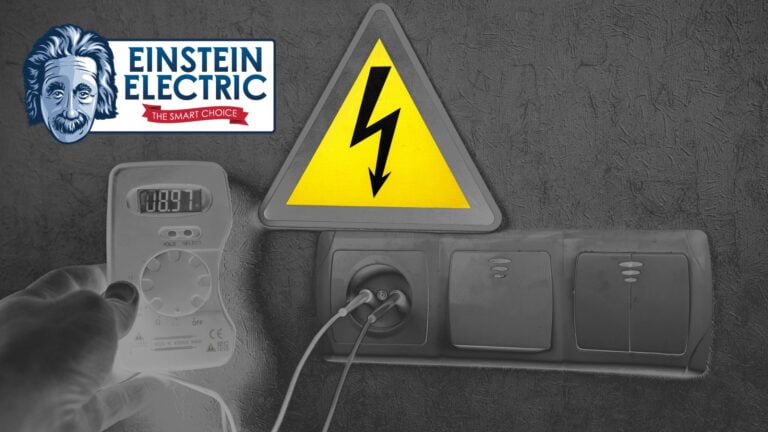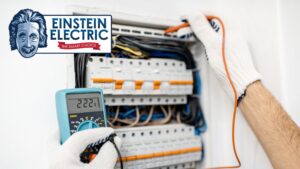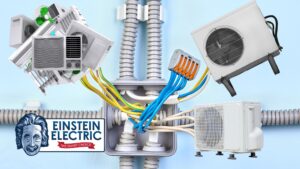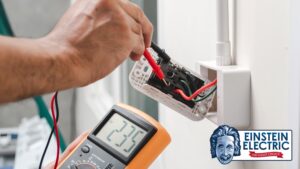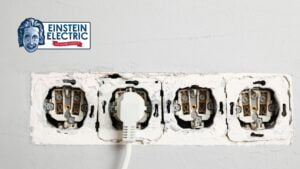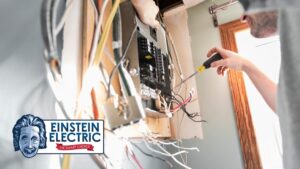Electricity is an indispensable part of our lives, powering our homes, workplaces, and countless devices. However, it’s crucial to recognize that electricity can also be hazardous if not handled with care. Electrical accidents can lead to severe injuries and even fatalities. Therefore, it is essential to prioritize electricity safety and educate ourselves about potential risks and preventive measures. In this comprehensive guide, we will explore the key aspects of electricity safety, providing you with the knowledge and tips necessary to protect yourself, your loved ones, and your property.
Understanding Electrical Hazards
Before diving into safety precautions, it is vital to understand the potential hazards associated with electricity. Electrical shocks, burns, and fires are the primary risks when dealing with electricity. Faulty wiring, damaged electrical cords, overloaded circuits, and mishandling of electrical appliances can all lead to accidents. It’s crucial to be aware of these dangers and take necessary precautions to minimize the risks.
One of the most common hazards is electrical shock, which occurs when a person comes into contact with an electric current. Electrical shocks can range from mild discomfort to severe injury or even death. It is crucial to remember that even low-voltage electrical systems can pose a risk if not handled properly.
Burns are another significant risk when dealing with electricity. Direct contact with electrical currents or overheating electrical components can cause severe burns to the skin. Additionally, electrical fires can occur due to faulty wiring, overloaded circuits, or improper use of electrical appliances. These fires can spread quickly and cause extensive damage to property and endanger lives.
Several factors contribute to these hazards. Faulty wiring, such as exposed or damaged wires, increases the risk of electrical shocks and fires. Damaged electrical cords, such as frayed or cut wires, can lead to short circuits or overheating. Overloaded circuits, when too many devices are connected to a single circuit, can cause overheating and potential fires. Mishandling of electrical appliances, such as using them near water or not following manufacturer instructions, can also lead to accidents.
By understanding these potential hazards, you can take necessary precautions to minimize the risks. Regularly inspecting electrical systems for any signs of wear or damage, using proper electrical appliances, and avoiding overloading circuits are essential steps in preventing accidents. Furthermore, educating yourself and others about electrical safety can create a culture of awareness and caution.
Remember, electricity is a powerful and potentially dangerous force. By being aware of the risks and taking proactive measures, you can ensure a safe and secure environment when dealing with electricity.
Preventing Electrical Accidents
Prevention is the cornerstone of electricity safety. Here are some essential steps to keep yourself and your surroundings safe:
- Inspect and Maintain Electrical Systems: Regularly inspect your electrical systems for any signs of wear, damage, or outdated components. Faulty wiring or aging systems can increase the risk of electrical accidents. By conducting routine inspections, you can identify signs of wear, damage, or outdated elements. Pay attention to frayed wires, loose connections, or flickering lights, as they may indicate underlying issues.
To ensure a thorough inspection, it is recommended to consult a professional electrician. They possess the expertise to identify potential problems that might not be immediately apparent. They can assess your electrical system, identify any issues, and provide necessary repairs or upgrades.
By addressing these issues promptly, you can mitigate the risk of electrical accidents and ensure the continued safety of your property and its occupants. Regular inspections and professional guidance play a vital role in maintaining a reliable and secure electrical system. Don’t overlook the importance of electrical maintenance, as it contributes to the overall well-being and safety of your home or workplace. Consult a professional electrician for inspections and necessary repairs or upgrades.
- Proper Electrical Appliance Usage: Always read and follow the manufacturer’s instructions for using electrical appliances. By reading and adhering to these instructions, you can ensure that you are using the appliance in a safe and efficient manner.
Additionally, it is important to avoid overloading outlets. Plugging too many devices into a single outlet can lead to overheating and potential electrical fires. Distribute your electrical load across multiple outlets or use power strips with built-in surge protection to prevent overloading.
Furthermore, never remove the grounding pin from a plug. The grounding pin is designed to protect you from electrical shocks by providing a safe pathway for excess electrical current. Removing this pin compromises the safety of the appliance and increases the risk of electrical accidents. Always use plugs and extension cords that are in good condition and have intact grounding pins.
By following these simple guidelines, you can ensure the safe and proper use of electrical appliances, reducing the risk of accidents and promoting a secure electrical environment. Prioritize safety by reading instructions, avoiding overloading outlets, and never tampering with grounding pins. Avoid overloading outlets, and never remove the grounding pin from a plug.
- Cord and Plug Safety: Inspect electrical cords for frays, cuts, or exposed wires. Replace damaged cords immediately. When unplugging appliances, pull the plug—not the cord. Use extension cords temporarily and avoid running them under carpets or across high-traffic areas.
Regularly inspecting electrical cords is an important safety practice. Look for any signs of fraying, cuts, or exposed wires. Damaged cords can pose a significant risk of electrical shock or fire. If you notice any damage, it is crucial to replace the cord immediately with a new one.
When unplugging appliances, always pull the plug itself rather than tugging on the cord. Pulling on the cord can weaken the connection between the plug and the cord, potentially causing damage or exposing wires. By pulling the plug, you reduce the risk of cord damage and maintain the integrity of the electrical connection.
While extension cords can be useful in certain situations, it is important to use them temporarily and avoid running them under carpets or across high-traffic areas. Extension cords are not designed for long-term use and can overheat if overloaded. They can also become a tripping hazard if not properly secured. For permanent power needs, it is best to consult a professional electrician to install additional outlets where necessary.
By inspecting cords, pulling plugs correctly, and using extension cords safely and temporarily, you can minimize the risk of electrical accidents and ensure a safer electrical environment. Prioritize cord maintenance, proper unplugging techniques, and appropriate use of extension cords for the well-being of yourself and others.
- Electrical Outlet Safety: Install tamper-resistant electrical outlets, especially in homes with young children. Avoid using extension cords as a permanent solution. If you notice loose outlets or sparks when plugging something in, contact a professional electrician.
It’s important to avoid using extension cords as a permanent solution. While extension cords can be convenient for temporary power needs, relying on them long-term increases the risk of overloading circuits and can create potential tripping hazards. Instead, consider consulting a professional electrician to install additional outlets where needed. This ensures a safer and more efficient electrical setup.
If you notice loose outlets or experience sparks when plugging something in, it’s crucial to take immediate action. Loose outlets can lead to electrical arcing, which poses a fire hazard. Contacting a professional electrician will allow for a thorough inspection and necessary repairs. Ignoring such issues can have serious consequences, so it’s best to address them promptly to maintain a safe electrical environment.
By installing tamper-resistant outlets, avoiding the permanent use of extension cords, and promptly addressing loose outlets or sparks, you can enhance the safety of your electrical system and reduce the risk of electrical accidents. Prioritize the well-being of your household by taking these precautions and seeking professional assistance when needed.
- Outdoor Electrical Safety: Use outdoor-rated extension cords and power tools. Keep electrical cords away from water sources and use Ground Fault Circuit Interrupters (GFCIs) to protect against electrical shock.
When working outdoors, it is crucial to use outdoor-rated extension cords and power tools designed for outdoor use. These are specifically designed to withstand outdoor conditions, reducing the risk of electrical hazards. Additionally, always keep electrical cords away from water sources to prevent electric shock.
Furthermore, for added safety, utilize Ground Fault Circuit Interrupters (GFCIs). These devices are designed to detect imbalances in electrical currents and quickly cut off power, protecting against electrical shock. GFCIs should be installed in areas where water and electricity may come into contact, such as kitchens, bathrooms, and outdoor outlets.
By using outdoor-rated extension cords, keeping cords away from water, and utilizing GFCIs, you can ensure a safer environment when working with electricity outdoors. These precautions minimize the risk of electrical accidents and promote a secure electrical setup.
- Lightning Safety: During storms, unplug electronic devices and avoid using landline telephones. Seek shelter indoors, away from windows and doors.
During storms, it is essential to take precautions to protect yourself and your electronic devices. Unplug electronic devices to avoid damage from power surges caused by lightning strikes. Additionally, avoid using landline telephones, as they can conduct electricity if lightning strikes the telephone line. Instead, rely on mobile phones for communication.
Seek shelter indoors during storms and stay away from windows and doors. Lightning can pose a significant threat, and seeking shelter in the interior of a building provides the best protection. Remember to stay updated on weather alerts and follow any instructions or warnings issued by local authorities to ensure your safety during stormy weather.
- Education and Awareness: Teach your family members, especially children, about electrical safety. Inform them about the risks and precautions to take when dealing with electricity.
Teaching your family members, especially children, about electrical safety is crucial for their well-being. Educate them about the risks associated with electricity and the precautions they should take when dealing with it. Teach them to never touch electrical outlets, cords, or appliances with wet hands, and to avoid playing with or inserting objects into outlets. Emphasize the importance of unplugging appliances when not in use and using caution when using electrical devices. By instilling this knowledge and awareness, you empower your family members to make informed decisions and develop safe habits when it comes to electricity.
Responding to Electrical Emergencies
Even with precautions, emergencies can still occur. Knowing how to respond promptly can save lives. Here’s what to do in different electrical emergency situations:
- Electrical Shock: If someone receives an electric shock, immediately cut off the power source by unplugging the device or turning off the circuit breaker. Do not touch the person directly—use a non-conductive object or turn off the power before providing aid. Call emergency services immediately.
- Electrical Fire: In case of an electrical fire, turn off the power if it can be done safely. Never use water to extinguish an electrical fire. Instead, use a fire extinguisher rated for electrical fires or smother the fire with a heavy blanket. Evacuate the area and call the fire department.
- Downed Power Lines: If you come across a downed power line, consider it energized and dangerous. Keep a safe distance, at least 30 feet away, and notify the local utility company and emergency services immediately.
Conclusion
Electricity is a valuable resource, but it can pose significant risks if not handled properly. By following the essential guidelines outlined in this electricity safety guide, you can reduce the chances of accidents and ensure the well-being of yourself and those around you. Stay vigilant, prioritize maintenance and inspections, and educate yourself about electrical safety. Remember, when it comes to electricity, knowledge and caution go hand in hand. Empower yourself with knowledge and take the necessary steps to make your environment safe and secure.

